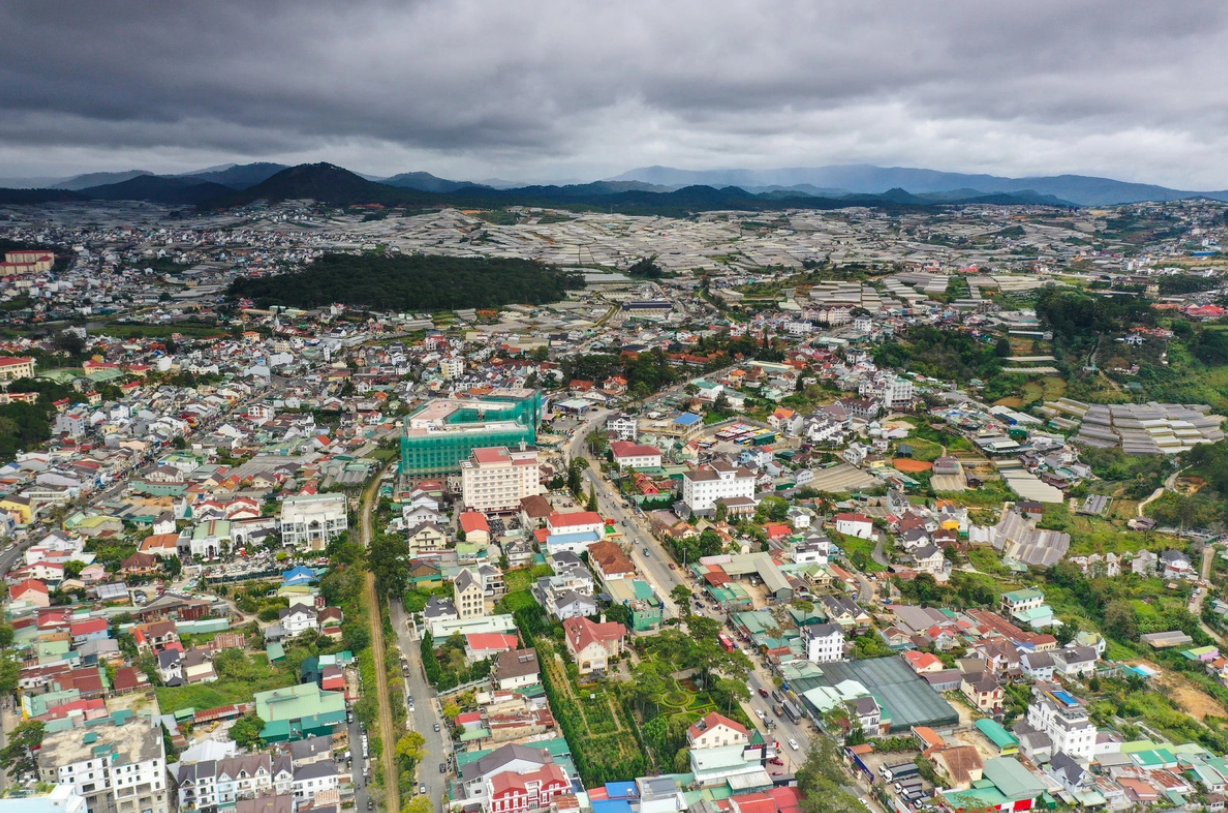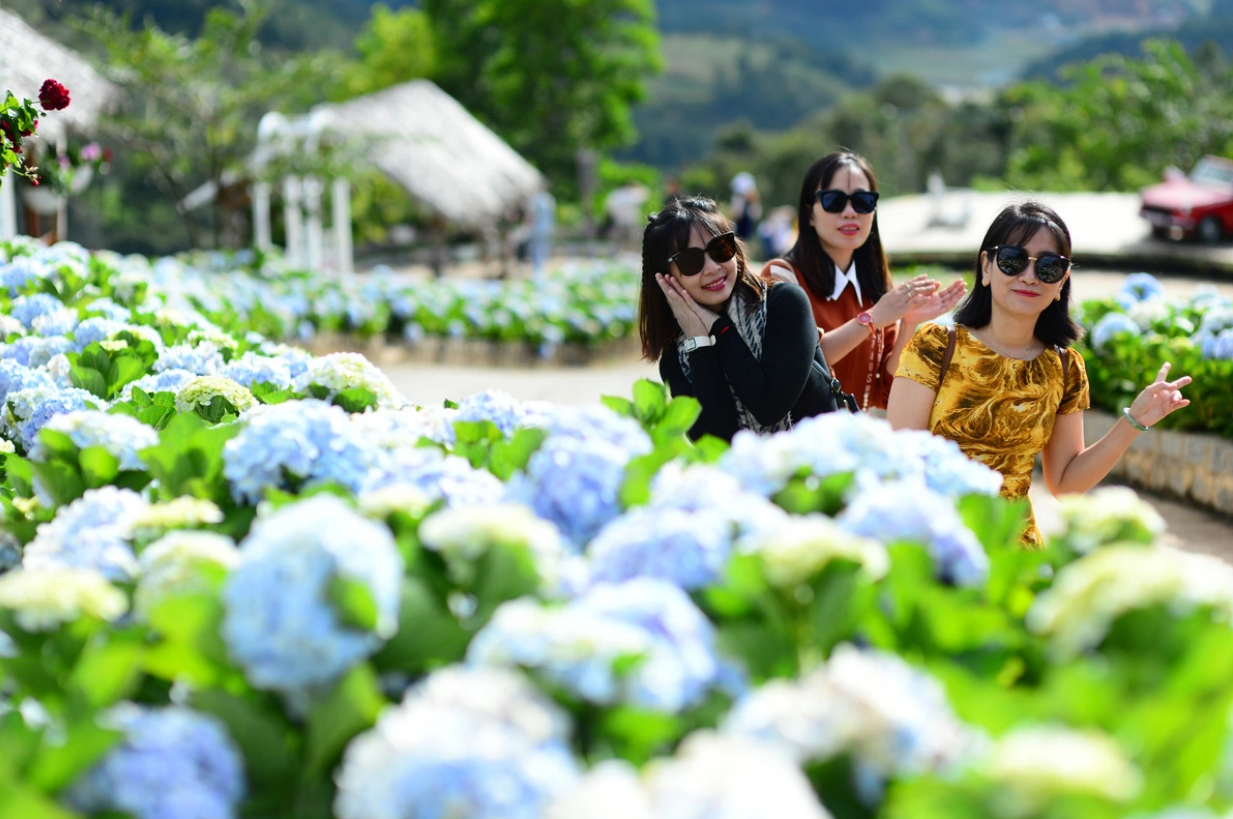Da Lat, a popular city in Vietnam's Central Highlands, should focus on improving the quality of tourism services, enhancing wildlife, environmental, and cultural conservation, and prioritizing its development as a green destination to promote sustainable tourism.
Da Lat, dubbed ‘a city of flowers,’ attracts crowds of local and international tourists thanks to its year-round cool weather, charming landscapes, multiple buildings of French architecture, and unique festivals.
Sustainable tourism is meant to harmonize economic, social, environmental, and cultural aspects, meeting the current demands and strengthening long-term growth.
The United Nations defines tourism as an industry that takes full account of sustainability and low emissions.
Sustainable tourism also highlights the importance of local culture and society, natural ecosystem protection, economic development, and the reduction of negative impacts on culture and the environment.
Travel firms should step up efforts in shifting to a sustainable tourism approach that includes improving infrastructure and reforming the service process.
The Global Sustainable Tourism Council sets and manages global standards for sustainable travel and tourism.
It also serves as the international accreditation body for sustainable tourism certification.
The council promotes responsible tourism, encouraging tourists to help conserve natural and cultural values.
Primary principles for sustainable tourism
In 2015, the United Nations announced 17 sustainable development goals seeking a balance between economic, social, environmental, and cultural priorities.
Sustainable tourism requires a dual approach of promoting economic growth while preserving natural and cultural resources.
According to the UN World Tourism Organization, sustainable tourism is aimed at guaranteeing current tourism activities and producing no negative impacts in the future, as well as benefiting the community and environment.
Firms active in tourism are encouraged to adopt measures to reduce carbon dioxide emissions, use renewable energy, effectively manage waste, and build a business strategy based on the participation of the community and green certification to raise awareness of sustainability.
Tourists play a key role in a journey toward sustainable tourism through their use of reusable products and joining activities that bring benefits to the community.
The success of sustainable tourism depends on a joint effort from all stakeholders.
The joint contribution by the government, firms, organizations, and tourists is essential to boost sustainable tourism, minimize negative impacts on society and the environment, and ensure economic, social, and environmental development.
Key elements for sustainable tourism in Da Lat
Boasting natural beauty and cool climate, Da Lat City in Lam Dong Province has much potential to become a leading eco-friendly destination.
The city can learn about Taiwan’s model of deploying a certification system for eco-friendly travel firms, applying international standards such as the ISO 14024, ISO 14044, and those set by the Global Sustainable Tourism Council.
These standards not only help reduce impacts on the environment, but also spur socio-economic sustainability and conserve local cultural features.
The municipal authorities should build a detailed and transparent assessment system to ensure that certification processes run smoothly and effectively.
The system should include detailed criteria such as using green items, saving energy, managing waste efficiently, and reducing carbon dioxide emissions.
Particularly, firms can start the sustainable tourism approach by replacing electric tools and equipment with energy-efficient ones and offering services that do not produce much waste, as well as encouraging tourists to prefer reusable products.
To help companies easily access the approach, Da Lat authorities should join hands with environmental experts to provide them with training courses and technical support.
Moreover, it is necessary to reduce taxes and give firms that meet the standards on green tourism financial aid.
Apart from setting up a sustainable tourism certification system, the city should call on local firms to utilize agricultural products to develop ecotourism and green cuisine in a bid to maximize brand values.
Last but not least, the city should expand a network of eco-friendly modes of transportation such as bicycles and electric vehicles to protect the environment, while enhancing communications activities to introduce Da Lat as an ideal green city in Vietnam.
|
|
| Da Lat City in the Central Highlands region of Vietnam has much potential for sustainable tourism. Photo: Quang Dinh / Tuoi Tre |
How is a travel firm in Taiwan certified as sustainable?
Taiwan applies the N7900 benchmark based on the ISO 14024 and ISO 14044 standards on environmental management to make its tourism eco-friendly. Its standard consists of the use of green items and low-emission tourism activities.
Closely monitoring compliance with these requirements helps Taiwan protect the environment and turn it into a sustainable destination.
Besides, Taiwan actively supports travel firms with tax cuts, training, and techniques to incentivize them to follow environmental standards.
Taiwan also provides a grading of Gold, Silver, and Bronze for firms pursuing Green Tourism.
The Bronze title is granted to entry-level businesses, while companies which meet some criteria will receive the Silver.
Enterprises which achieve the highest standards of sustainability are granted the Gold.
The classification aims to encourage businesses to enhance their standards and attract environmentally conscious customers.
According to regulations on environmental education, the certification process involves multiple stages, including registration, monitoring, and issuance through the National Environmental Research Academy.
This process is designed to improve the quality of environmental education and promote environmental protection.
Many hotels and restaurants in Taiwan are adopting green practices, such as utilizing local materials and minimizing the use of single-use items.
Like us on Facebook or follow us on X to get the latest news about Vietnam!





















































